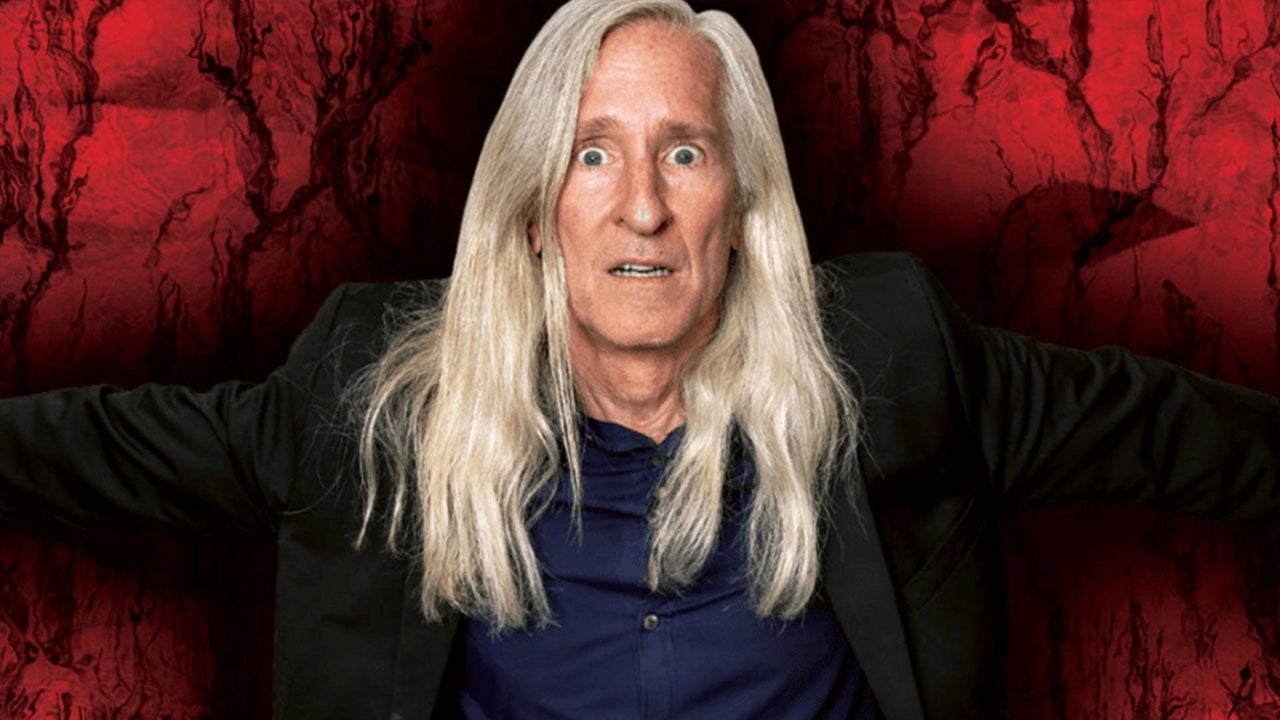
What an honour to have some time with Mick during our Monsters and Movies event!
One of the highlights during the weekend was his live Post Mortem podcast before THE THING with Reece Shearsmith – we dive into the podcast below, along with Stephen King, memory tips, Hocus Pocus and more!
We were just chatting away as the interview started…
MICK: This is my first time in Manchester.
THE REAPER: What have you thought of it?
I really love it. I’ve had a great time here.
You should definitely come back.
It’s a schizophrenic city.
Schizophrenic?
<laugh>. Well, architecturally at least, all of the huge modern buildings and the beautiful old buildings just butted up against each other.
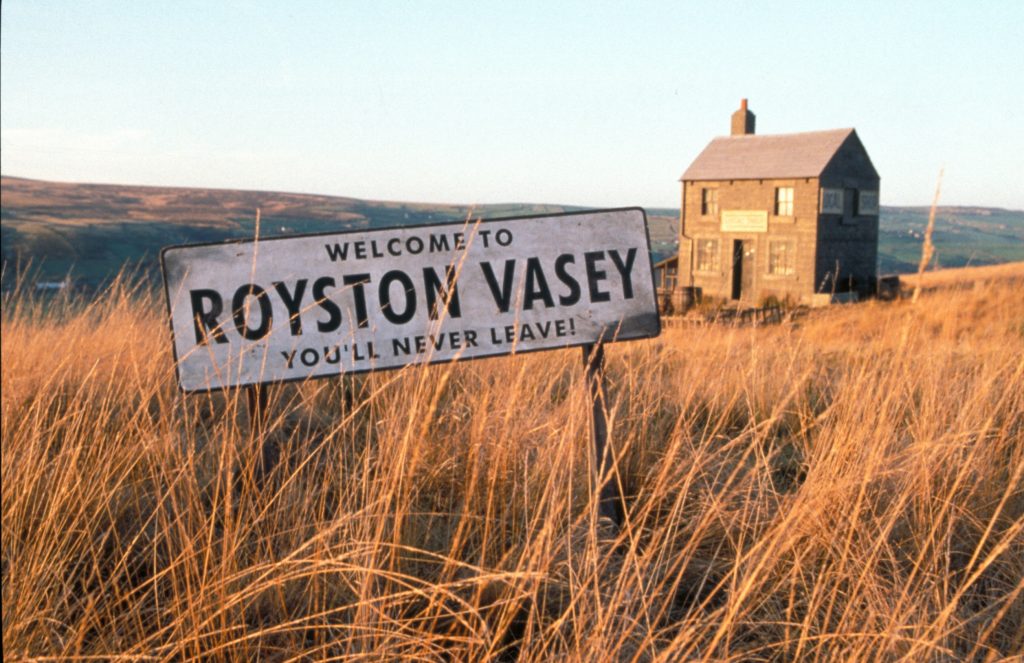
You managed to get a visit to Royston Vasey into your itinerary.
I did, yes.
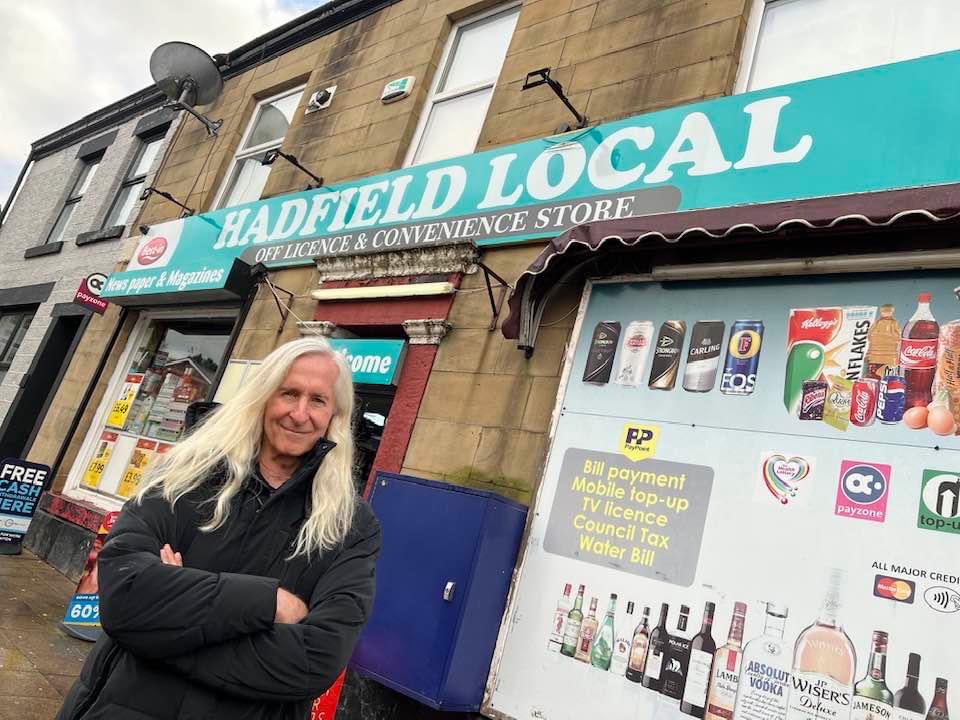
I’ve never been, I mean it’s Hadfield. But it’s the place, isn’t it?
I kept expecting Babs to pull up.
Bab’s Cabs! I have to get this question in for a massive HOCUS POCUS fan, I apologise. So how did that come about? As briefly as you can. How did the idea come to you and how was it developed?
Well, the idea originally was David Kirschner’s – he’s the producer of the movie, and he came up with this story to tell his two young daughters. It was their bedtime story, then he wrote it as a short story for the Muppet magazine and then he pitched it to Disney and to Spielberg and to various places. He worked with Spielberg on An American Tail, the animated film. At the same time I was working for Spielberg on Amazing Stories. We met and hit it off and we had the same points of view and taste and all this stuff. We really hit it off and he thought I would be the right guy to take his story into screenplay. You know, we had this great relationship with Spielberg but when he found that Disney wanted to do it he said, “I don’t want to be a part of it” as Amblin and Disney were quite competitive at that time for the family audience.
Ah, of course!
Even beyond family, in fact. So I wrote the first two or three drafts and then it took eight years to get a green light. There were 11 other writers on it after me, but they went back to my original script in almost every way, except they made the kids 16 and I had written them as 12. 12 is a much more potent time for Halloween. It has much more of a permanent effect.
That’s true. At 16, you’re stealing the candy. A different story.
So that’s how that came to be.
Very good. So you’ve got this… well, it’s not even a reputation. You ARE a master of horror.
I just happened to create a show called MASTERS OF HORROR, where there were a lot of real masters of horror. You know, I look at people like Tobe Hooper and John Carpenter and Dario Argento, and these are acknowledged masters of horror. I still feel like… you know, I’m a student. Despite my grey years.

<laugh>. But that’s a good thing. Perpetually a student, always learning.
It’s kind of why I do the podcast because it’s fun. But I also literally learn something from every single one I’ve done, like close to 150 interviews over the six years. Some with famous people, some with not so famous people, some with new filmmakers, some with older filmmakers. But I learn something on every single show. It sounds like bullshit, but it’s true.
No, I believe you. So each one is worthwhile in its own way. You always learn something.
Even if, you know, there will be a filmmaker, maybe I’m not crazy about their movie or whatever, but I still learn from them and we have a conversation. I can always find something positive to talk about. The format of that show is very much the way I try to live my life – through encouragement and through as much positive input and output as possible.
Trying to keep the negativity out of the equation.
There’s enough of it around.
There really is. You mentioned the podcast. It’s obviously massively successful.
Well, I wouldn’t say that
<laugh>. Oh, I would.
I’m proud of it. I think it’s wonderful because we have such great guests, but nobody makes a living on their podcast unless they’re super duper, you know, TV people.
I get what you’re saying. I just meant in terms of listening figures, it must be high.
But podcasts, unless they’re really famous are in the low thousands. We do well as a genre podcast because I think nobody has a guest list like we’ve had. The genre fans find it and, and they seem to enjoy it.
Has that always been the case since the start of the podcast? You just reach out to people because you’ve got these connections that you’ve built up over the years?
Mostly. Some of the people I didn’t know beforehand, maybe a PR department will pitch it, but I have to keep telling them our show is about careers, not about the movie that’s coming out this weekend. We’re not there to promote something unless the timing is right. We get whoever has a new movie out, but if they’ve only made one movie, they’re on because their story is fascinating. Like the guy who made SMILE, he’s our current guest and he’s made one movie, but the story behind how he made it and everything, that’s a really fascinating hour of conversation. It’s always been learning and I’m as interested as the audience is and I have always, as an interviewer – even back to my old days – have sought the knowledge.
It’s always curiosity that leads me and that obviously helps as an interviewer. If you’re engaged in what you’re asking and what the guest is saying. You’re actively listening, you’re interested and it helps the flow as well.
Yeah. That’s an important part of interviewing. If you’re gonna ask a question, then listen to the answer carefully and if you’ve got a follow up question, adapt it to what they’ve said. The trivialities sometimes become the most important parts of the conversation.
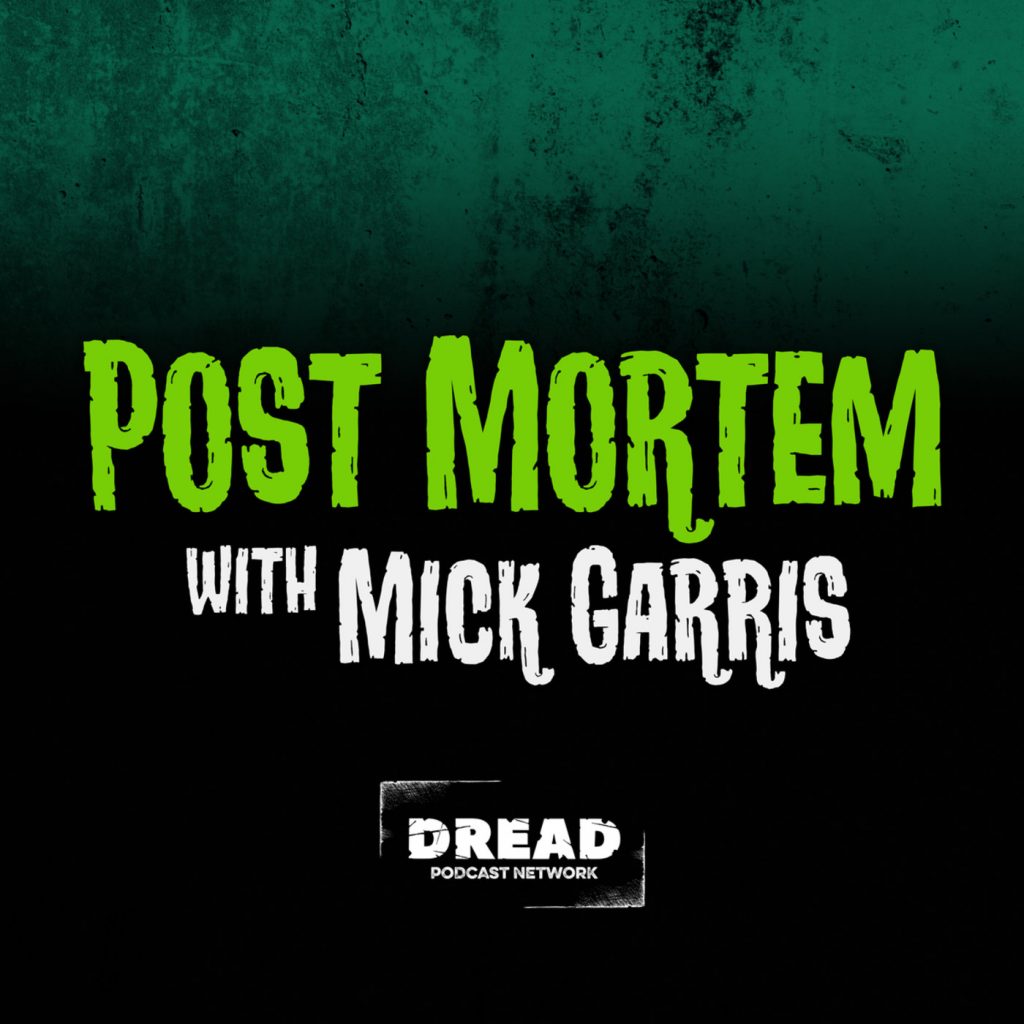
That’s true and so fascinating. In terms of the podcast, what are a couple of your favorite episodes or favorite people you’ve spoken to?
Some of them become very emotional. The Clive Barker interview, he’s a guy who doesn’t do many interviews and we’ve known each other and been friends for over 30 years. But it’s a really powerful and emotional one. Stephen King, we finally got him after three years, you would think he would’ve been easy to get, but it takes a while! Recently we did Jamie Lee Curtis and we go way back. I did publicity for her in the early 80’s and worked on movies that she worked on and near the end of the interview she comes to tears and Kevin Williamson did the same thing talking about Wes Craven.
It’s a place where, because I’m a filmmaker rather than a journalist, people know where we come from the same place and, and there’s common ground to talk about and they tend to feel relaxed and they haven’t got the guard up. They open up more. Even if at first it’s more like an interview, it normally becomes a conversation when it really works.
That’s brilliant. Is there anyone you haven’t managed to get yet that you would love to have on there?
James Wan said he’d do it and we haven’t been to able to schedule him. Quentin has said he would do it and we haven’t been able to schedule him. It’s just really hard to get some people to commit the time to an hour long sit down. It’s a podcast. It’s not for a major publication or anything. So even though the podcasts remain available, they’re still not the same as the New York Times, you know?
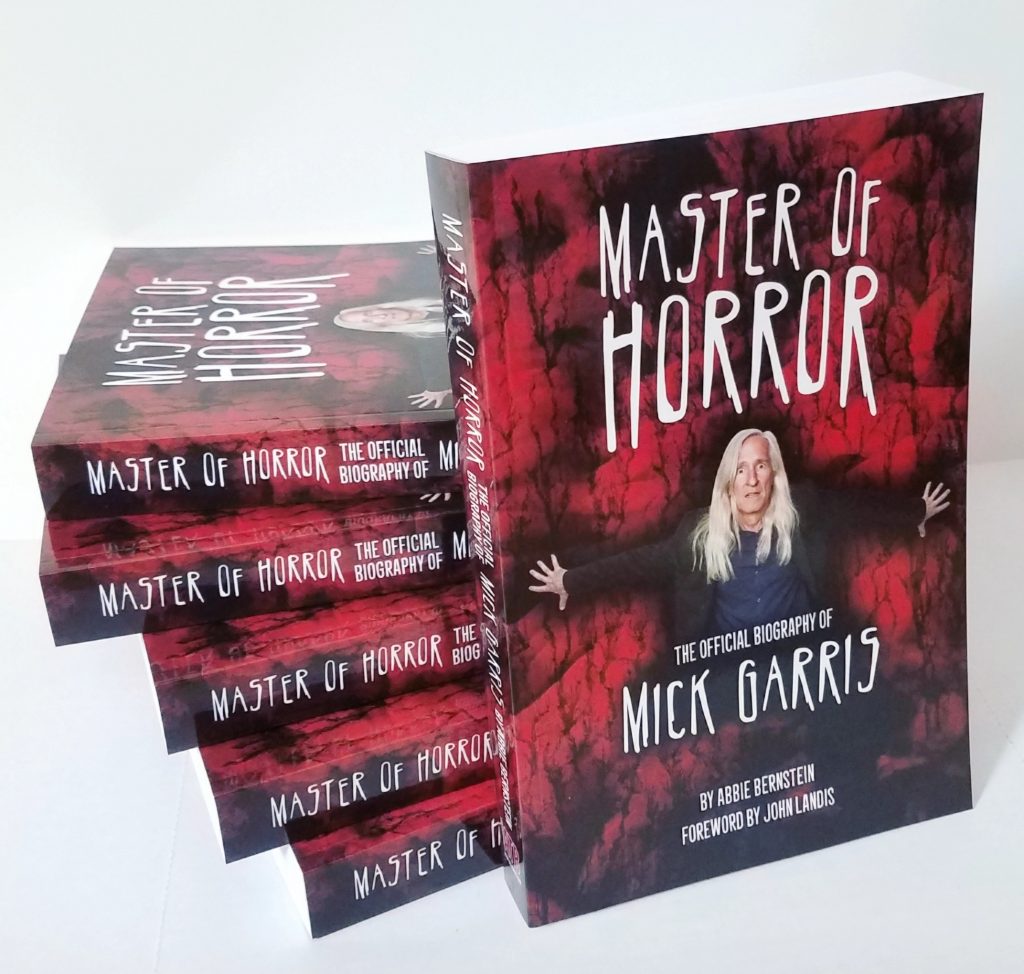
Of course. I hope you can schedule them in soon. There’s a biography out called… yes, Master of Horror. Given the stories you’ve got, the people you’ve met, the life you’ve had, where’s the autobiography?
Now? There’s no need for one. And I never thought that there was a need for a biography, but Abby Bernstein, who’s been a friend of mine for 40 years, she asked me for years if she could do a biography of me. I said, no one is interested in a biography of me. I’m not Wes Craven, I’m not Tobe, I’m not John Carpenter. She said “if I find a publisher, would you agree to do this with me?” I said, sure.
Thinking there’s no way!
Yeah. I would always joke with her and say my mother’s dead, who’s gonna buy it? But then she found a publisher and she did a fantastic job and it still baffles me that anyone would be interested. I’m not being overly modest.
No, I get it. You’re just a bit baffled.
Somebody wants to read a book about me. That’s weird.
Say this book was turned into a film or a miniseries, who would you want to play you?
Oh God, I don’t know. I would like to think I’m inimitable <laugh>.
You play yourself through all ages.
At age 70 I play the rock n’ roll singer in his twenties.
So the casting is settled, but no autobiography.
No autobiography. Everything I would cover is in Abby’s book. She did such a good job and she would ask me about things that I hadn’t thought of in decades and she talked to my family and friends and old band mates and things like that. So she did a really wonderful job.
Given everything you’ve done in your life, your memory seems to be impeccable. Have you got any tips for improving someone’s memory?
One thing I think is being a writer, you’re constantly exercising your brain just by the process of writing stories and doing interviews and things. I’m studying Spanish, studying another language is something that’s supposed to really help your memory. I just think keeping active and not sedentary and questing forward rather than resting on laurels. I don’t have that many laurels to rest on.
<laugh> You love hikes. That’s another way you keep active.
I’ve had some back problems, so I haven’t been able to do that as much as I used to. I’ve always been in good shape and I’ve been a vegan for a decade and I’ve never had an alcoholic beverage. I’ve never smoked a cigarette or done any drugs of any kind.
Other than my heart, I’ve got good genes. I lost both parents to heart attacks. I had one a couple of years ago myself, which was totally unexpected, it’s called a widow maker that’s got a 12% survival rate. So I’ve kind of been face to face with my mortality a couple of times. You find that hopefully it deepens you as a human being as well as an artist, if I may use the A word.
You can use that A word. That was a beautiful answer, thank you. With films and miniseries you’ve made, are there any in particular you would love to do a sequel or follow up to in the current day and age after however long it is?
I’m not big on franchising, like THE STAND was THE STAND and I wouldn’t want to continue from that unless they did it in a very different take. But I’m more someone who once I’m done with something I wanna move on.
You don’t go back to that well.
People say you should do another CRITTERS movie. Great. My first movie in 1988. I should do another one of those. I appreciate the sentiment behind it, but I’ve done it. The great thing about Stephen King and our work together is he’s such an inexhaustive source of great material. We haven’t worked together in a while, but hopefully there will be something else down the line.
People talk about a sequel to SLEEPWALKERS and things like that. CRITTERS always was a franchise. They made 3 and 4 direct for video because CRITTERS 2 was a disaster when it came in. Self-contained things like THE STAND, THE SHINING, BAG OF BONES, why would you want to expand when it was never planned that way?
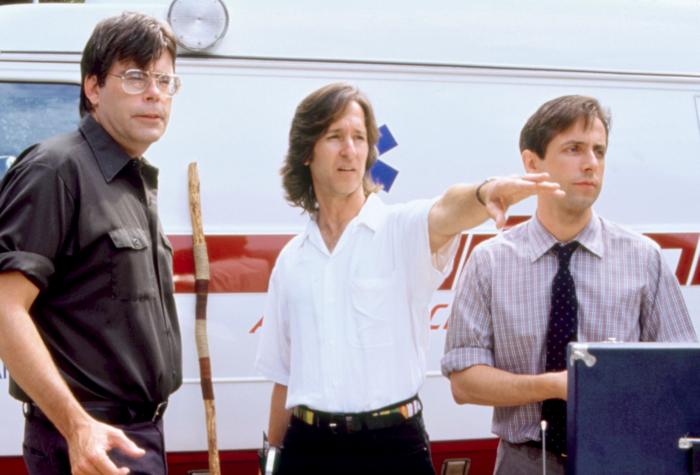
Of course, I see what you’re saying. Speaking of Stephen King, why do you feel such an affinity for his work? I appreciate the inexhaustive source material, but is there specific aspects that appeal from his output?
We come from a very similar background. He’s a few years older than me, but we were both raised by single mothers. As kids, we watched The Twilight Zone and the Outer Limits and the Hammer movies and the Universal movies. We have very similar touchstones and there’s a humanity in his work that I would like to think is something that we share. What makes his horror so satisfying is because it happens to real people in a very real world. I love that about it. The more fantastical something becomes the less interesting it is to me. The more grounded it is, especially in horror, the more terrifying it is if you have people that you can identify with in situations that you can recognise.
Then horror intrudes on that situation and it’s much more relatable.
I always feel that good horror has to be good drama first, and that it’s much harder to make a good horror movie than to make a good drama. A good drama you can do with a good script and a good cast. With horror you need to tell that dramatic story with good characters, good script, good cast, but also create tension and release and be able to build suspense and fear on top of all that – and it all comes from the strong drama foundation.
A massive thank you to Mick, a true gentleman!